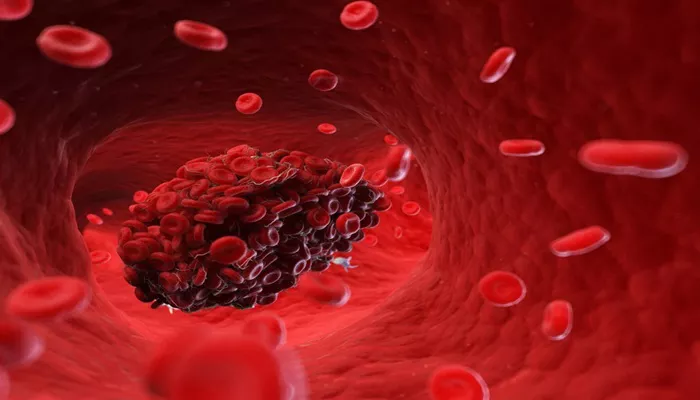Arrhythmia refers to an irregular heartbeat, which can manifest as a heart that beats too fast, too slow, or with an irregular rhythm. This condition can arise from various factors, including heart disease, stress, or electrolyte imbalances. While not all arrhythmias pose serious risks, certain types can lead to significant complications, one of which is the formation of blood clots. Understanding the connection between arrhythmia and blood clots is crucial for managing the health of individuals at risk.
What Is Arrhythmia?
Arrhythmia is a broad term that encompasses any variation from the normal rhythm of the heart. It can be classified into several types, including:
Atrial Fibrillation (AFib): A common type where the upper chambers of the heart (atria) quiver instead of beating effectively.
Ventricular Tachycardia (VT): A fast heart rhythm that originates from the ventricles.
Bradycardia: A slow heart rate that may cause inadequate blood flow.
Each type of arrhythmia has different causes and implications, but their potential to lead to blood clots is a significant concern, especially in AFib.
How Arrhythmia Can Lead to Blood Clots
The primary concern with certain arrhythmias, particularly AFib, is their potential to create an environment conducive to blood clot formation.
Here’s how it happens:
Inefficient Blood Flow: In AFib, the atria do not contract effectively. This inefficiency can lead to stagnation of blood, especially in the left atrial appendage (a small pouch in the left atrium). When blood stagnates, it increases the risk of clot formation.
Increased Turbulence: The irregular rhythm associated with arrhythmias can create turbulent blood flow. This turbulence can lead to areas of lower pressure where blood can pool, further promoting clot formation.
Endothelial Damage: Chronic arrhythmias can contribute to damage in the lining of the blood vessels (endothelium). This damage can activate the clotting cascade, increasing the likelihood of thrombus (clot) formation.
SEE ALSO: Can Stress Cause Atrial Flutter?
Risk Factors for Blood Clots in Arrhythmia
Several factors increase the risk of blood clots in individuals with arrhythmia:
Age: Older adults are at a higher risk due to age-related changes in heart function and blood vessel health.
History of Heart Disease: Conditions such as heart failure or previous heart attacks can exacerbate arrhythmias and increase the risk of clot formation.
Hypertension: High blood pressure can contribute to both arrhythmia and clot formation by stressing the heart and blood vessels.
Diabetes: This condition can lead to vascular damage and increase clotting tendencies.
Obesity: Excess weight can strain the heart and contribute to both arrhythmia and clot formation.
Diagnosis of Blood Clots in Arrhythmia
The diagnosis of blood clots in patients with arrhythmia often involves several methods:
Echocardiogram: This ultrasound test can visualize the heart’s chambers and blood flow, helping identify areas of stagnation and the presence of clots.
Transesophageal Echocardiogram (TEE): A more sensitive test that provides clearer images of the heart’s structures, particularly useful in detecting clots in the left atrial appendage.
CT or MRI Scans: These imaging modalities can help detect clots in other areas of the body, particularly if there are symptoms of complications.
Treatment Options
The treatment for blood clots in patients with arrhythmia focuses on reducing the risk of stroke and other complications.
Common treatment options include:
Anticoagulants: Medications like warfarin or newer agents such as dabigatran, rivaroxaban, or apixaban can thin the blood and reduce the risk of clot formation. The choice of anticoagulant depends on the individual’s health status and specific risk factors.
Antiarrhythmic Medications: These can help restore normal heart rhythm and improve blood flow. Common options include flecainide and amiodarone.
Cardioversion: This procedure involves delivering a shock to the heart to restore a normal rhythm. It may be used in acute settings or for patients who are symptomatic.
Catheter Ablation: In certain cases, a procedure called catheter ablation may be used to eliminate the sources of arrhythmia, reducing the risk of clots.
Lifestyle Modifications: Encouraging healthy lifestyle choices such as maintaining a balanced diet, engaging in regular exercise, and managing stress can also help improve heart health and reduce arrhythmia-related complications.
Prevention Strategies
Preventing blood clots in patients with arrhythmia involves several strategies:
Regular Monitoring: Regular follow-up appointments with a healthcare provider can help monitor heart rhythm and adjust treatments as necessary.
Adhering to Medication: It is crucial for patients to take prescribed medications consistently and to discuss any side effects with their doctor.
Managing Comorbidities: Conditions like hypertension, diabetes, and obesity should be managed effectively to reduce overall cardiovascular risk.
Education and Awareness: Educating patients about the signs of stroke (such as sudden weakness, difficulty speaking, or facial drooping) is essential. Prompt action can significantly impact outcomes.
Conclusion
Arrhythmia, particularly atrial fibrillation, can indeed lead to the formation of blood clots. The inefficient blood flow and turbulence created by these irregular rhythms contribute to an increased risk of clot formation, which can result in serious complications, including stroke. Awareness of the risks and proactive management through medications, lifestyle changes, and regular medical care are vital in reducing the incidence of blood clots in individuals with arrhythmia.
Related topics:
- Can Arrhythmia Cause Heart Attack?
- How Do Doctors Treat Heart Palpitations?
- Is Heart Arrhythmia Genetic?

